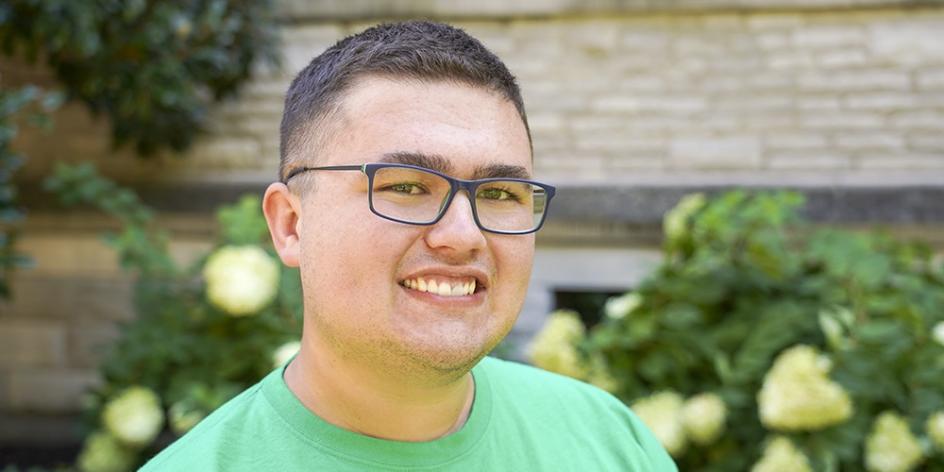
Summers are for fun in the sun, but two Computer Science majors decided on a different path, stepping out of their comfort zones and traveling to the southern U.S. for prestigious Research Experiences for Undergraduates (REU).
Senior Jarett Woodall completed his summer REU at Texas A&M University in Corpus Christi, Texas, and senior Chloe Duquette headed to Socorro, New Mexico, for her summer REU at New Mexico Tech, a STEM institution.
While their research topics were drastically different – “Utilizing Machine Learning Models to Predict Cold Stunning Events” for Jarett and “Emerging Issues in Cybersecurity” for Chloe – both returned to the Heidelberg campus this fall ready to share their experiences and apply their new learning to coursework and their future careers.
A model to rescue sea turtles
Jarett spent most days during his 10-week experience debugging his model’s code, running trials to measure the efficiency of the model, hyperparameter tune the model to help improve its learning rate, and creating PowerPoint slides for future presentations.
Sounds complicated, but he felt well prepared. And his research project may just end up saving the lives of sea turtles.
“The research project utilized machine learning models to predict cold stunning events,” Jarett explained. Cold stunning events occur when the temperature of a body of water drops drastically in a short period of time. “When these events occur, sea turtles are left stunned and unable to function, causing the population to drop as individuals of their species are killed by boats, predators and other facets of nature.”
Jarett explained that his research project was introduced so first responders can better coordinate rescue operations for the stranded sea turtles using their predictive model.
One of the best parts of the experience was stretching out of his comfort zone. “Don’t be afraid to open yourself to new experiences and people,” he encouraged. “Take advantage of any opportunity that comes your way, even if it’s something you are on the fence about.”
Assessing new tech for cybersecurity risks
 Chloe completed the cybersecurity class in her major and read a number of research papers in preparation for her REU. She primarily spent her time in the research mode – finding correlating research, writing and editing and meeting with her faculty mentor.
Chloe completed the cybersecurity class in her major and read a number of research papers in preparation for her REU. She primarily spent her time in the research mode – finding correlating research, writing and editing and meeting with her faculty mentor.
Her research project is titled “Cybersecurity Risks in Precision Agriculture.” She explains, “As the population rises, food production will need to increase with it. Precision Agriculture utilizes modern technology in order to use agricultural resources as efficiently as possible.”
Because these new and emerging technologies – including satellites, GPS, drones and IoT (Internet Of Things) devices – are widely unregulated, cybersecurity issues could emerge in varying types and threat levels, she said.
Chloe’s work on the project didn’t end when her REU did; she continued to work on the project after arriving back in Ohio toward the publication of her team’s draft paper later this year.
One outcome of Chloe’s experience will serve her well after graduation. “I have a greater understanding of how to effectively research and work as a team toward a common goal,” she said. “I also have a better understanding of cybersecurity risks in emerging technologies.”